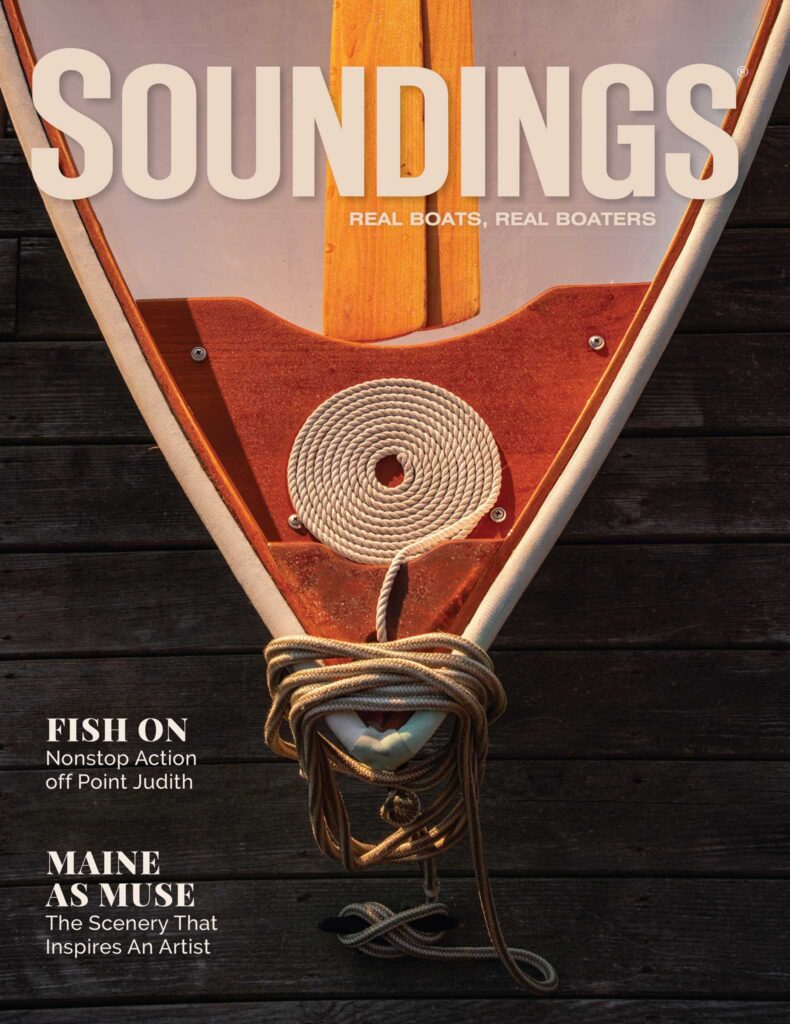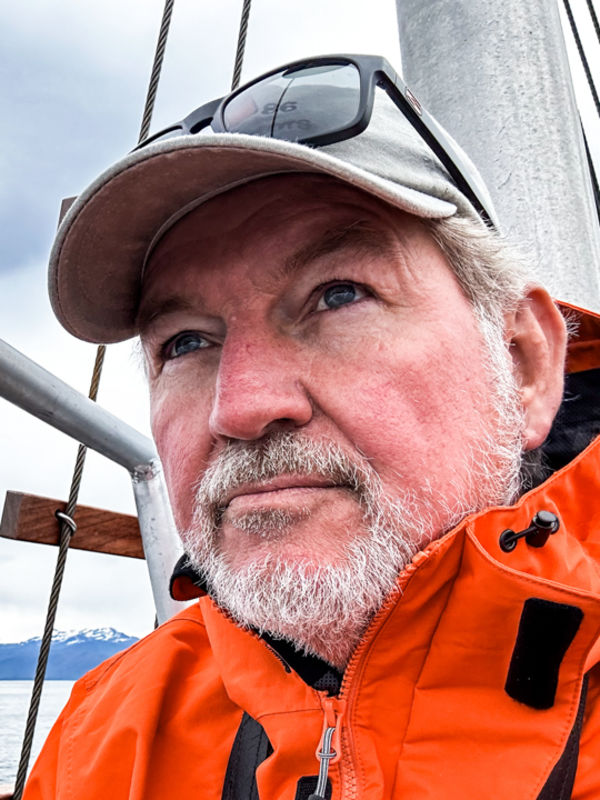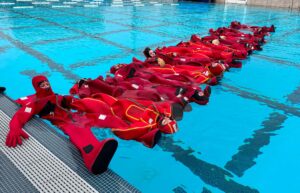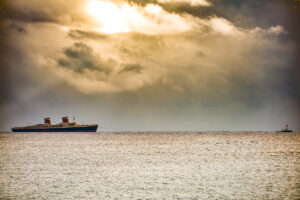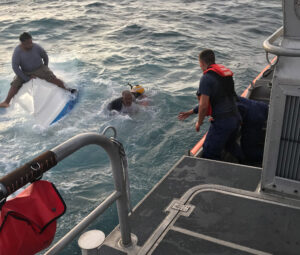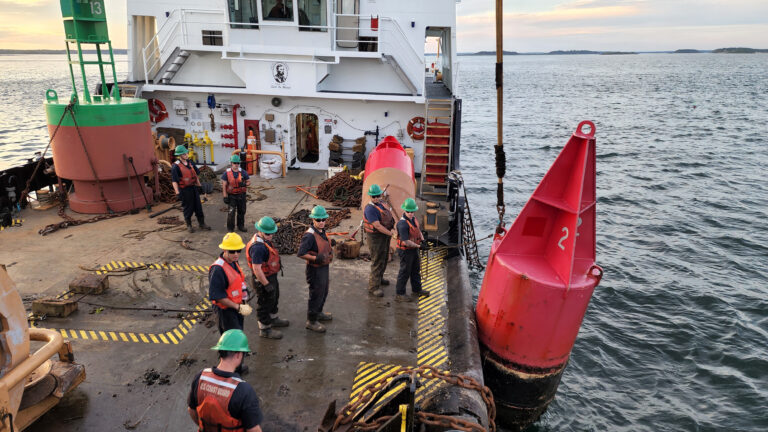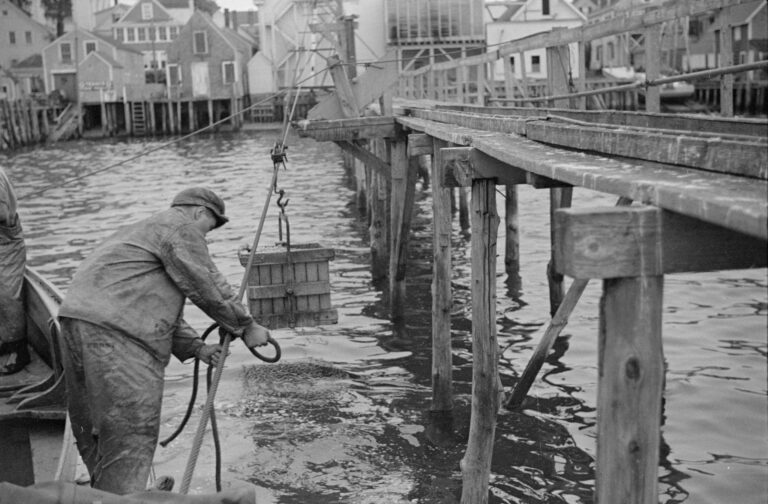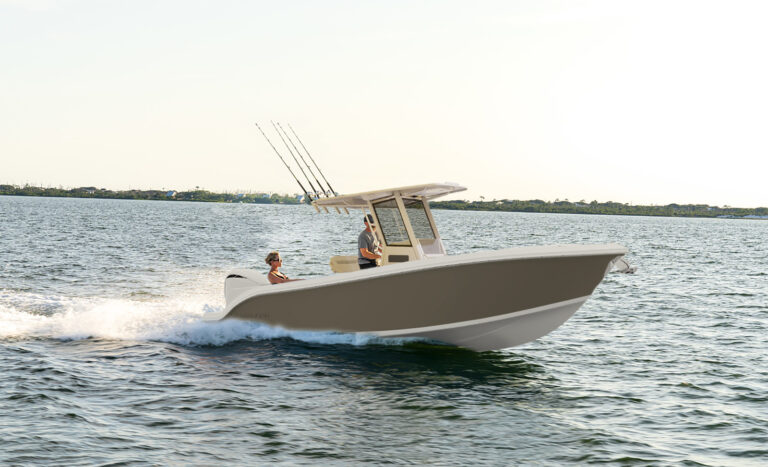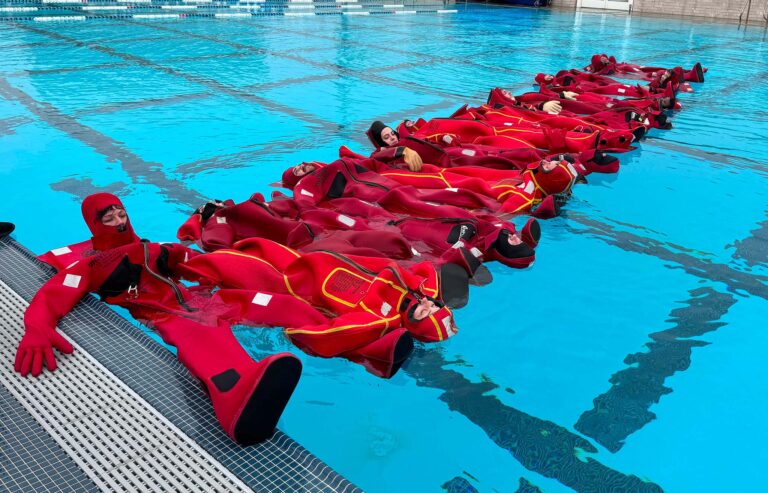Years ago, I was invited to help deliver a schooner to Key West, Florida, only to be faced with an uncomfortable situation before we ever left the dock.
It was late fall when my brother and I arrived in Beaufort, North Carolina, to replace two crewmembers who had helped sail the schooner south from New York. The owner was eager to get to Key West to charter out his boat. The plan was for us to depart early the next morning, but that afternoon, the crew gathered in the salon for a phone call with a private weather service provider. In addition to the owner, his wife, my brother and me, the crew consisted of two licensed captains—one of whom served as skipper, and the other as first mate and engineer. I was the least experienced sailor on board.
The forecaster reported that a front was moving toward Cape Hatteras, and even though conditions might become a bit unpleasant, there was a window of opportunity for us to make it to Charleston, South Carolina, before the storm would force us to hole up in the Holy City for at least one day.
After the phone call, the owner put the decision to sail to a vote. If one of us said no, we would stay in Beaufort until the storm passed Cape Hatteras. In quick succession, the owner, his wife, the first mate and my brother all voted to sail the next day. Then it was my turn.
I am not a fair-weather sailor. Over time, I have acquired a taste for big wind, and I tend to head out for a sail when most people have already headed back to the dock. But while listening to the forecaster, I had developed reservations about a morning departure. My brother and I had not had any time to become familiar with the boat, I had no idea where anything was stowed, and during the weather briefing, I had learned that on the way down from New York, the port engine had acted up. Otherwise, the boat appeared to be in great shape, although during a quick spin around the deck, I had noticed that the new life raft had not yet been secured.
As the vote was tallied, I was hoping someone would say, “No,” so I wouldn’t have to be the one. I had never met any of these people, and they were my brother’s clients, so I did not want to embarrass him.
So, when it was my turn, I told them I always liked to read the “what went wrong” stories in the back of boating magazines, the ones about people who went to sea even though there’d been reasons to stay in port. I listed what I saw as reasons to stay in Beaufort for two days: a significant weather front moving toward us with promises of unpleasant and potentially dangerous conditions; the opportunity to have an engine part shipped so we could leave with two reliable engines; the opportunity to secure the life raft; time for my brother and me to get to know the boat; and the opportunity to sail straight to Key West with more favorable winds after the storm passed.
I never had to say no, and the captain never got to vote. To his credit, the owner didn’t hesitate to say we would stay in Beaufort.
We rigged a tarp over the boat so we could work out of the rain, and two days later we sailed for Key West. Eventually we got perfect weather, and on the last day they had to pry the helm out of my hands on what would be the longest, most glorious beam reach of my life.
For a little while, I wondered if the owner resented me for delaying the delivery of his boat, but he didn’t. We became friends and, more than a decade later, remain in touch. The captain became a close friend too. A year after that trip, I asked him how he would have voted if I had agreed to sail for Charleston the next day.
“Had you left the next morning,” he said, “I would have stood on the dock, handed you the lines and waved goodbye to you.”
Since then, someone told me that the most dangerous thing on a boat is a calendar. It’s become one of my favorite expressions.
This article originally appeared in the March 2020 issue.

